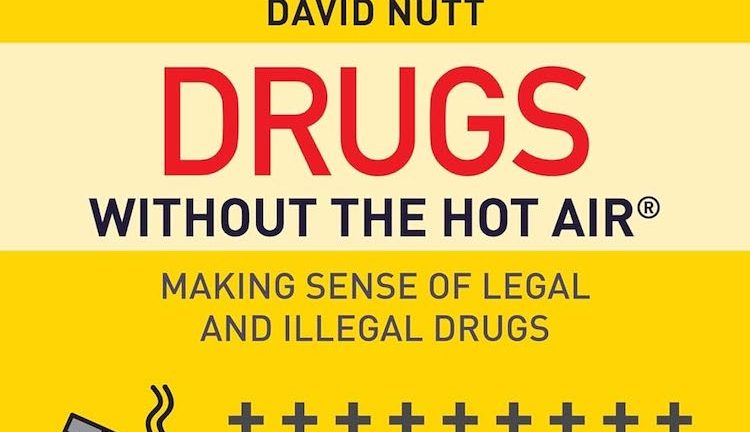By Jonathan Power
LUND, Sweden | 31 January 2024 (IDN) — Not that long ago, Sherlock Holmes could quite legally sit by the fire in his London flat with his pipe and sniff cocaine. If friends wanted to join him they could, without fear of a police raid, and smoke marijuana. Opium was used for those in unbearable pain and could be bought without a doctor’s prescription. (Alas, most people in poorer countries then and today have never been able to afford any pain relief. Too many die in agony.)
Historically, it is the British who have the worst record on the misuse of drugs. When the British controlled India, they became the largest drug trafficker the world has ever seen, transporting opium from India to China, forcing Chinese ports open so they could win addicts among the mass market of the poor.
These days, when it comes to alcohol and tobacco, in most societies, the degree of control is subject to fierce debate, and when it comes to drugs, banning them seems to be the majority conviction. But have we got our priorities right?
The leading health problem in Britain, the US, and Europe is alcohol, not drugs. “There is no other drug which is so damaging to so many different organs of the body”, writes Imperial College neuropsychopharmacology professor David Nutt in his book, “Drugs Without Hot Air”. In a study he made, alcohol came out on top as the drug that causes the most severe damage. Heroin is a much lower second.
Cocaine and methamphetamine are much lower down the league table than heroin. Tobacco comes next, followed by cannabis. Ecstasy rarely causes damage. Neither do LSD, khat and mushrooms.
In our hospitals, one finds only small numbers who have overdosed on drugs.
ut the perpetrators and victims of car crashes pour through hospital doors, and many are there because the driver was intoxicated with alcohol. Our tax money often pays the bill. Smokers with their cancers fill many hospital wards, and we, the people, pay the billions of dollars it costs.
Nutt also points out that each year tobacco kills 8 million people across the world and alcohol 3 million. In comparison, illicit drugs kill only 130,000. (World Health Organization statistics.)
Public education on smoking, including bans on advertising and increased taxes, has seen the proportion of British people who smoke fall from 40% in 1978 to around 13% today. The same is true of other richer countries. Even policies in the Third World are changing. All major airlines in Africa have banned smoking.
Make drugs legal, but use every tool to cut down consumption.
Shouldn’t that be the way we treat drugs—make them legal but use every tool to cut down consumption? It is their illegality that has created the black market and the monster of drug gangs who intimidate whole societies, as in Mexico and Columbia, with their killing sprees and corruption of governments. And now Ecuador, which has seen over the last couple of years a transformation from a peaceful, democratic, tourist-welcoming country into a living nightmare as the drug gangs push themselves ruthlessly forward to the front.
If we legalised drugs, hundreds of thousands would no longer be incarcerated for a minor offence. Governments would receive a large revenue from the taxation of drugs to pay for their public health programs. The drug gangs would lose their income.
Alcohol in the US today is legal. Prohibition in the 1920s was counterproductive. If you had money, you could get it, and gangsters like Al Capone ruled the roost. In 1933, Prohibition ended. So did the income of the drug lords. (You can argue today that alcohol is too cheap and too readily available. A good idea would be to make drinkers and smokers pay their hospital bills, even if they have insurance.)
In the US, under President Barack Obama, marijuana consumption became permitted for medical purposes. That then seemed a big step, but these days, even conservative Catholic Ireland permits some consumption of heroin as long as it is injected under medical supervision in so-called “shooting galleries”. Consumers know that this way, they will get clean needles and immediate medical help in case of need.
“Shooting galleries”
In 1970, the Netherlands opened the first “shooting galleries”—supervised injection centres. Now, all European countries have them. Also, Australia and Canada. In Sydney, the policy has reduced the number of ambulance call-outs for overdoses by 80%. There is no evidence that these galleries increase the habit. Unfortunately, in the US, the galleries are in only half a dozen cities, including New York.
But the hard-bitten addicts, it must be stressed, are not the real problem. Their consumption as a percentage of what is consumed worldwide is a small fraction. The problem in Europe and North America is mainly a white person’s problem- those who consume it for pleasure as they do alcohol- and those, particularly in America, where people are not well-educated and have lost their permanent jobs thanks to globalisation.
Little has been done by health and educational efforts to show these two groups of people that their habit is causing untold suffering and societal breakdown in many Latin American countries. The late American symphony conductor and composer, Leonard Bernstein, was shown in the recent movie, “Maestro” snorting cocaine at a party. That kind of person is a big part of the problem.
The so-called “war on drugs” needs a total rethink. The guns must be turned in a different direction—on the demand side. It is time overdue for a more sophisticated approach. [IDN-InDepthNews]
Copyright Jonathan Power
Visit: www.jonathanpowerjournalist.com
Image: Cropped cover of David Nutt’s book
IDN is the flagship agency of the Non-profit International Press Syndicate.

